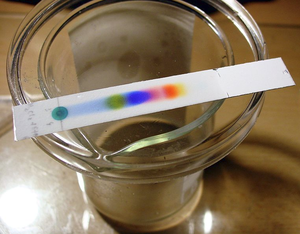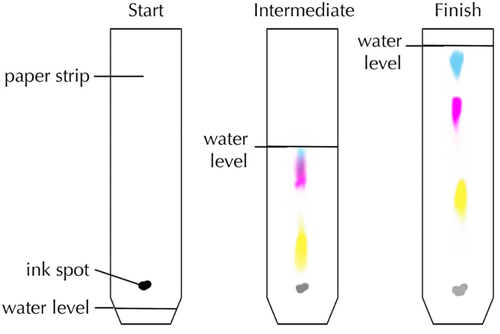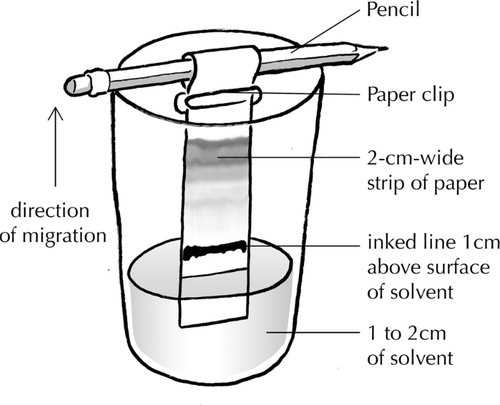Difference between revisions of "Chromatography"
(→About Chromatography) |
(→Method) |
||
| Line 21: | Line 21: | ||
|- | |- | ||
| style="height:20px; width:500px; text-align:left;" | | | style="height:20px; width:500px; text-align:left;" | | ||
| − | : 1. Draw a line across a piece of [[chromatograph]] paper. | + | : 1. Draw a pencil line across a piece of [[chromatograph]] paper. |
: 2. Place a dot of ink on the line. | : 2. Place a dot of ink on the line. | ||
: 3. Hang the paper so that it touches the water but do not let the ink go below the water line. | : 3. Hang the paper so that it touches the water but do not let the ink go below the water line. | ||
Revision as of 12:06, 22 January 2019
Contents
Key Stage 3
Meaning
Chromatography is a method used to separate and identify different solutes found in a solution.
About Chromatography
- When more than one solute is dissolved in a solvent chromatography can be used to separate them.
- Chromatography experiments are often done with colourful solutes which can be seen easily.
| This diagram shows how black ink is made of three different inks in solution. |
Method
|
Key Stage 4
Meaning
Chromatography is a technique used to separate and identify different solutes found in a solution.
About Chromatography
Chromatography can be used for:
- Separating and identifying two or more solutes from a solution.
- Identifying pure from impure substances.
Chromatography cannot be used for:
- Separating separating liquids in solution - Fractional Distillation
- Separating an insoluble solid from a soluble solid - Filtration
- Separating solutes from a solvent in solution. - Evaporation (Crystallisation) or Distillation.
- Chromatography relies on different chemicals experiencing different forces of attraction between the solvent used and the chromatography paper.


